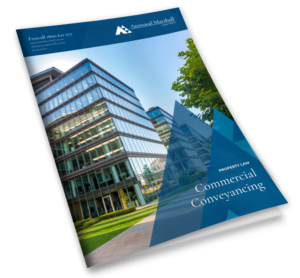Commercial Conveyancing
Property Law
Helping you ensure your commercial property transaction is smooth and settles on time
Buying or selling commercial property can be a stressful experience. Commercial conveyancing is generally a lengthier and more complex matter, in contrast to residential conveyancing. There’s a wide variety of legal issues which must be considered in these transactions, including the permitted use of the land, commercial or retail leases, land tax, town planning and zoning implications and GST.
Our property lawyers are regularly involved in all types of commercial conveyancing matters including:
- Industrial buildings
- Offices
- Retail spaces
- Medical and dental rooms
- Childcare centres
- Off the plan commercial developments
Commercial conveyances involve a number of complex considerations. It’s imperative to ensure you receive the right advice and assistance from the outset to ensure your interests are protected.
Attwood Marshall Lawyers offers a wealth of experience in commercial purchases and sales across both Queensland and New South Wales. Our property and commercial team will ensure your matter is handled efficiently and with great attention to detail and regard to all aspects of the commercial process.
We are a leading PEXA certified electronic conveyancing firm. Our streamlined e-conveyancing process allows us to complete commercial property settlements in conjunction with other lawyers, conveyancers and financial institutions quickly and effectively. We can lodge all the required documents and transfer funds in real time in a digital environment that reduces the risk of any errors or delay. You can have confidence and peace of mind in knowing your commercial purchase or sale will settle on-time.
Free Info Pack
Provide your details below and our Commercial Conveyancing Information Pack will be sent to your inbox.
FAQs
Commercial conveyancing is the sale and purchase of office space, retail space or industrial property. The commercial conveyancing process is usually a complex process, as it involves an extensive due diligence process, permitted use of the land considerations, commercial or retail leases, land tax, town planning and zoning implications, and GST.
The residential and commercial conveyancing process are similar in the sense that both involve the transfer of freehold land. However, commercial conveyancing is generally a more in depth and complex transaction, due to the additional considerations of the transaction, such as any leases, the use of the property, the due diligence process and tax implications.
Yes! We strongly recommend you see an experienced property and commercial lawyer before you sign any Contract, and in particular a commercial Contract. This is the best way to ensure your legal interests are protected.
Due diligence is an integral part of any commercial purchase. The due diligence process should ensure that all the applicable enquiries are made to ensure you a making a sound commercial investment. The due diligence process may involve undertaking a pest and building inspection, searches with the local Council and other relevant bodies and a thorough review of the lease and tenant conduct.
Whilst it is often the case that no two transactions are alike, the general process for a commercial conveyancing involves:
- Both parties obtaining the appropriate legal and accounting advice as to the correct entity to appear on the Contract.
- Both parties obtaining legal advice as to the terms and conditions, including any special conditions of the Contract.
- Once the Contract is agreed upon, each party will sign the Contract and the critical dates will be determined and diarised.
The Contract conditions may include:
– Pest and Building Inspection
– Finance
– Due Diligence
– Review of Leases
– Prior Sale - Once the Contract is unconditional, both parties will begin preparing for settlement, which will include the appropriate exchange of documents, calculation of settlement adjustments and finally, the transfer of land in accordance with the title’s office requirements.

